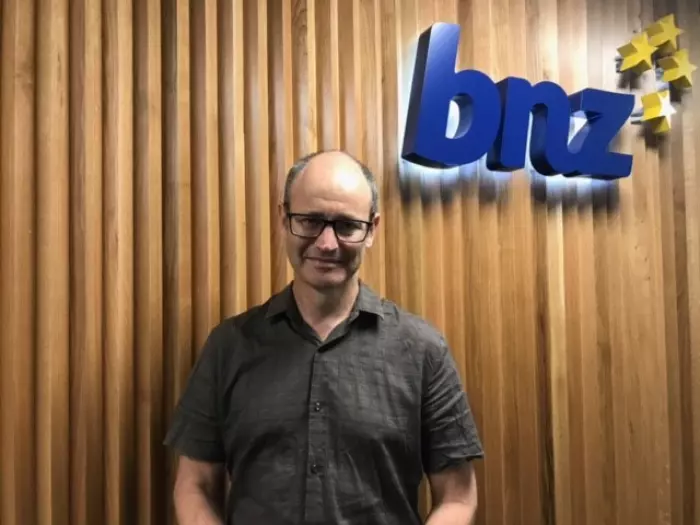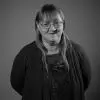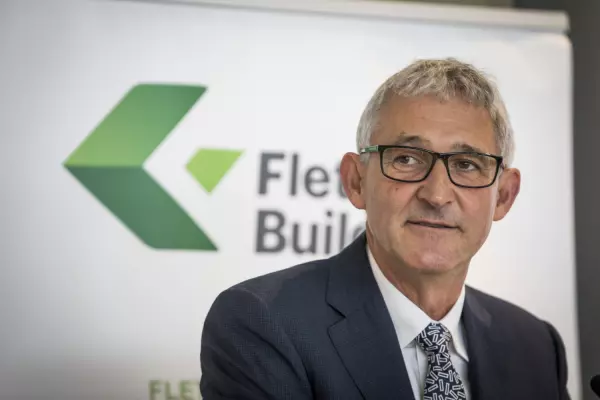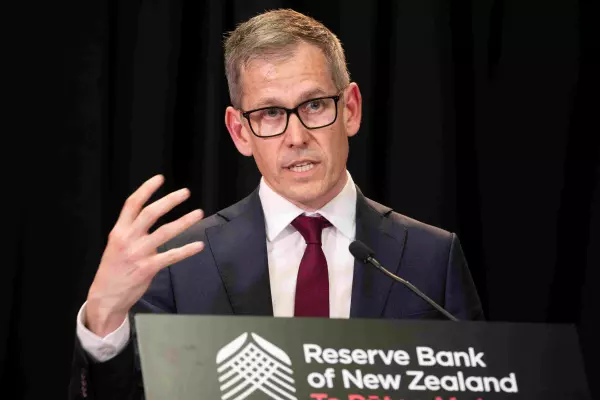Bank of New Zealand's new chief economist said he isn't a traditional bank economist and he doesn't plan on hanging on every twist and turn of the business cycle or changes in monetary policy.
"I'm more about productivity … driving long-run well-being, particularly material well-being. It's more those long-term structures that matter, rather than where we are in the cycle," Paul Conway told BusinessDesk.
The interest in productivity isn't surprising, given Conway's background. Before he joined BNZ nearly two years ago as one of its economists, he had spent seven years at the Productivity Commission.
Before that, he had also worked for the Reserve Bank, the OECD and the World Bank.
Conway's appointment to his new role from Feb. 1 followed a long hiatus for BNZ being without a chief economist since long-serving Tony Alexander resigned in September 2019.
BNZ opting for somebody like him, rather than someone who would more conventionally focus on monetary policy, "is a brave call for a bank to make," he said.
Housing market problem
Improving productivity and improving NZ's economic performance would boost well-being, but a major obstacle to that well-being is the state of our housing market, he said.
House prices rose 17.3 percent nationally in calendar 2020 while average ordinary-time weekly earnings rose just 3.6 percent.
"The fact that our housing market is so broken has really detracted from the well-being of NZers," he said.
Isn't that rather dangerous ground for somebody who works for a bank that lends billions on housing?
"I don't see it that way. I think you can still lend people money to buy houses in a market that includes affordable houses," Conway said.
But a bank is well-placed to assist in driving productivity improvement, he said.
"A bank has got a great network and it's got great channels, a great amount of data. I think a bank is well-placed to adopt productivity-enhancing technologies" and to encourage its customers to adopt them too.
Conway's first major effort as chief economist is scheduled for March when he will release the first survey benchmarking the adoption of technology and the level of skill NZers have in using technology.
This survey will be repeated each year so the country can track its progress.
Filling in blanks
"It's going to fill in the blanks" and should be useful in developing strategies to increase digital inclusion, he said.
Conway doesn't buy that NZers have a track record of being early adopters of new technologies, calling it a myth.
"Eftpos is the example that's often given but, if we look at it a bit more broadly, it might be that new innovations show up in NZ relatively quickly but the speed with which they disperse across people and businesses in NZ is relatively slow," he said.
"It's not a particularly competitive environment. Firms don't feel the same imperative to adopt new technologies as they do in larger economies.
"In a large economy, it's more about competition. In NZ, I think there's a real place for collaboration."
Conway would like to see the concept of the annual agricultural field days held at Mystery Creek in the Waikato extended to other industries.
"We need to build the equivalent across the economy to showcase digital technology across different industries."
The accelerated adoption of some technologies, such as Zoom, that the covid-19 epidemic has forced upon the world, could pay off for NZ.
"A fundamental reason for our poor productivity performance is the fact that we're a long way from global markets and we're a small economy," he said.
Using digital tools
"Adoption of digital tools has the potential to lessen those disadvantages and, in fact, turn them to our advantage. I think the world is changing in ways that suit NZ."
But then comes a seeming heresy: "I don't mean to get too hung up on productivity," and he prefers to look at it in a wider context, "how does an economy best serve the people? How much well-being can an economy deliver? Are we using our resources in a sustainable way?"
He is certainly aiming for work/life balance, working four-days-a-week so he can spend more time with his 12 year-old son and partner, fellow economist Anne-Marie Brook.
The latter is a fellow at consultancy Motu and she focuses on measuring human rights with the objective of inspiring more ethical behaviour by governments and other parties with power.
While he often works from home too, Conway stresses that he's part of the economics team — his predecessor, Alexander, tended to be a lone wolf, doing his own thing, having little to do with head of research Stephen Toplis and the rest of the economics team.
Conway said Toplis is "one of NZ's top economists. He was part of the attraction of me coming here. We're in different places but we check in with each other very regularly."
He suggests the two of them will be instrumental in producing a great deal of "interesting economics" in the next few years.















